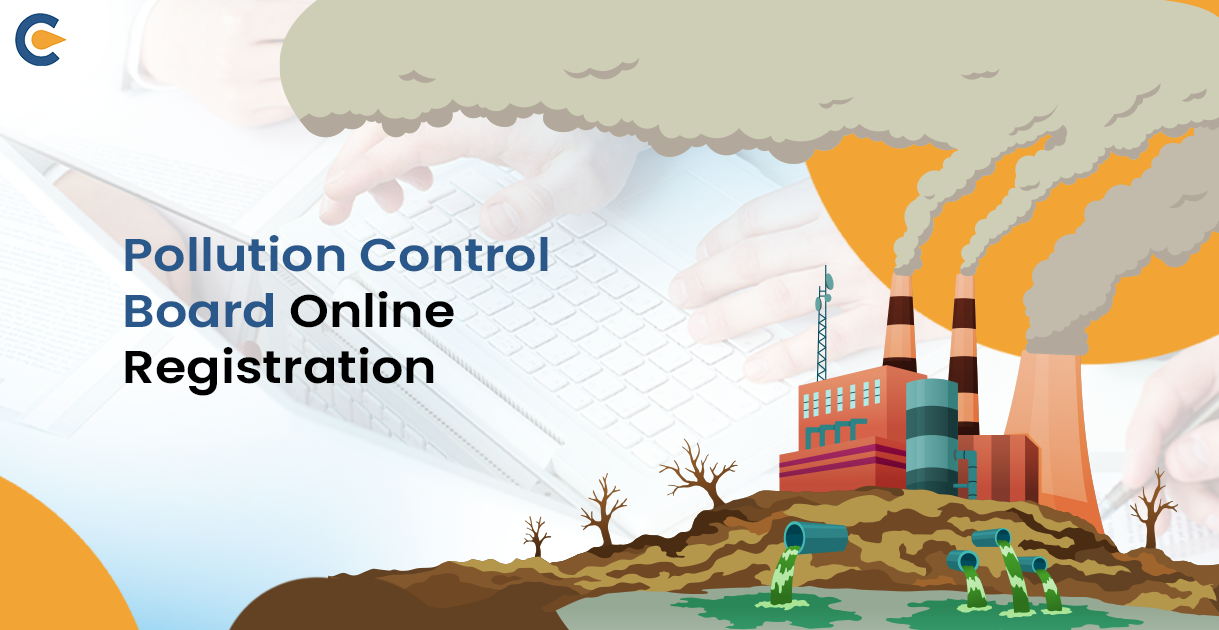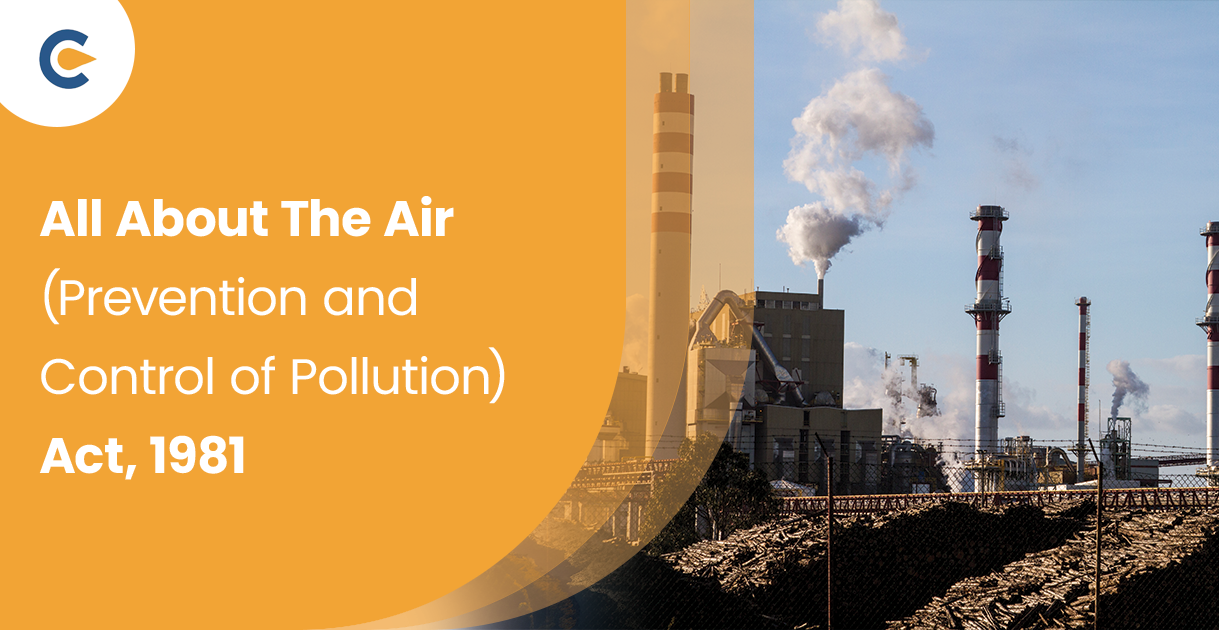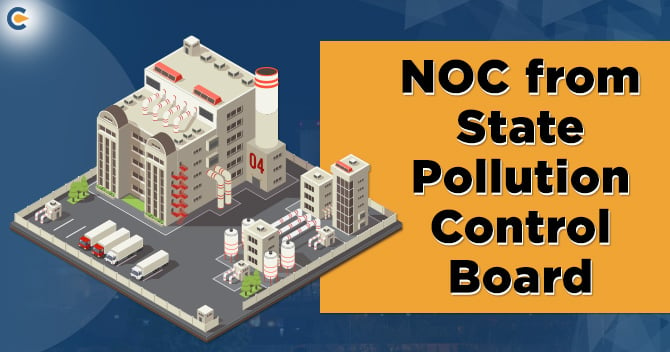The Central Pollution Control Board (C.P.C.B.), which is issued by the Ministry of Environment, Forests, and Climate in India, is subject to regulation by said ministry. This board’s objectives are to monitor air, water, and noise pollution levels and to establish standards for upholding quality. Every state also has a pollution control board. Since this method is likely to contaminate the environment, approval from the State Pollution Board is necessary for every company that discharges operating wastes into the sewage system.
The Pollution Control Board authorizes the provision of guidelines or recommendations on any topic pertaining to the prevention and management of pollution. Obtaining the Pollution Control Board Authorization is required, and it is also necessary to submit an online application for its renewal after it has expired.
What is the Pollution Control Board in India?
The entity concerned with implementing and upholding laws and rules pertaining to pollution control & safeguarding the environment is known as a pollution control board. Monitoring, reducing, and controlling different types of pollution is its main objective in order to protect the environment, public health, and general well-being. Generally, these boards supervise and control a variety of pollution-producing activities, including waste management, industrial emissions, pollution of the environment, water pollution, air quality, and hazardous material pollution.
To make sure that environmental laws are followed, they establish standards and guidelines, provide licenses, carry out inspections, and take enforcement action against offenders. By combining economic expansion with environmental conservation and working to reduce the negative effects of human activity on the environment, pollution control boards serve a critical role in supporting environmentally friendly development.
Under the N.O.C. Pollution Control Board, the following industries are subject to CТО/СТЕ requirements:
- Manufacturing
- Healthcare sectors and institutions
- E-waste management-related industries
- Solid waste management industries
- Hazardous waste management industries
- Battery waste management entities
- Plastic waste management entities and
- Bio-medical waste management industries.
Functions of the Pollution Control Board
The functions of the pollution control board:
- Offering advice to the central and state governments on issues pertaining to the mitigation, enhancement, and management of air and water pollution.
- Organizing a range of initiatives to reduce and stop pollution of the air and water
- Developing and coordinating training courses for those engaged in initiatives aimed at reducing, preventing, and controlling pollution of the air and water.
- Gathering information, putting it together, and disseminating technical and statistical reports about air and water pollution. These studies aided the development of preventative strategies to manage and lessen pollution.
- Drafting instructions, standards, and manuals for the cleaning and disposal of trade and sewage effluents, stack gas cleaning equipment, stacks, and ducts.
Why is Pollution Control Board Online Registration Important?
The board carries out studies and environmental assessments. Under several environmental regulations, it is in charge of upholding national standards while consulting with zonal offices, tribal governments, and municipal governments. Its duties include keeping track of monitoring data and conducting water and air quality monitoring. The central board has the power to acquire, retain, and dispose of property as a body corporate with perpetual succession. They have the authority to sign contracts and to bring legal action in Central Board’s name. The following are the responsibilities assigned to the Central Pollution Control Board under Section 16 of the Water (Prevention and Control of Pollution) Act of 1974:
- Advisory to the central government
- Coordinate with state pollution control boards
- Give the technical advice and support.
- Organize thorough programs and conduct training sessions.
- Publish the statistics data
Pollution Control Board Online Registration: Types of Consent
For an entrepreneur, starting a new manufacturing company is a significant undertaking. Obtaining many government authority permissions is necessary when starting a new industry. Getting the State Pollution Control Board’s consent is one of the main prerequisites. The Water Act of 1974 and the Air Act of 1981 require the new units to get permission even before they begin further production.
- Consent to Establish: The C.T.E. stands for Consent to Establish. To create or run any industrial industry, the authority must provide this kind of approval. This has to do with getting first approval from the appropriate body to run any kind of noise or air pollution business.
- Consent to Operate: Consent to Operate (C.T.O.) is the term used to describe the second type of permission. To guarantee that the sector is upholding operational standards, this consent would be necessary.
Pollution Control Board Online Registration: Advantages
It is very essential to get a pollution control board registration in India. There are various advantages of pollution control board online registration. Following are some of the benefits of registering with the pollution control board:
- Legal Compliance:
Pollution control board registration ensures that the company is in compliance with all the rules and regulations laid down by the government for the protection of the environment and reducing pollution in the country. It signifies that the company abides by all environmental regulations and works within the permitted limits.
- Accountability and Reputation Building:
When a company registers under the pollution control board, the company/business demonstrates that it cares about the environment and is also trying to prevent pollution by adhering to all the standards prescribed by the government of India. Because of this stance, the reputation of the company increases among consumers, shareholders, and the public in general.
- Consent for Operations:
With the Pollution Control Board online registration, the P.C.B. gives consent to the industries to operate. This consent is a formal authorization for the companies to carry out their operations, which ensures that the companies are carrying out only those activities that are in alignment with the specified rules and regulations and are lawfully operating.
- Risk Mitigation:
There are many industries whose work can cause environmental damage. Having a pollution control board registration reduces the risk of accidents, which can cause damage to the environment.
- Facilitation of Investments and Funding:
Having a pollution control board registration is considered a very positive aspect for the company from the point of view of consumers, stakeholders, and the public. Pollution control board registration indicates that the company is a responsible entity, which in return attracts many investors and even government funding and investments.
Pollution Control Board Online Registration: Crucial Documents required
Documents required for pollution control board online registration during the registration process of pollution control board are mentioned below:
| Identification of the relevant entity-authorized individual | The factory license that the business obtained |
| Proof of address | P.A.N. Card for business or partnership |
| A trade license under the entity’s name | In the case of a private limited business, the articles of association and memorandum of association |
| The entity’s proof of registration | The entity’s F.S.S.A.I. Certificate if it is running a food company |
| The CA letter, which details the project’s overall cost and other relevant information | Bills for utilities such as electricity that attest to the entity’s existence |
| Report on N.O.C. Compliance | Water NOC-Related Reports |
| Air NOC-Related Reports | Information on managing hazardous waste |
Pollution Control Board Online Registration: Registration Process
The steps for the registration process of the pollution control board are as follows:
Stage 1: Fill the Application
To obtain a pollution control board registration, you will have to first fill out the application and upload it online on the website. The application form will consist of the basic and essential details of the applicant and the business for which the registration is being done.
Stage 2: Attach the Important Documents required for the Pollution Control Board Online Registration
After the application is filled out, the next step is to acquire and compile all the essential documents that are to be attached to the application at the time of submission of the application.
Stage 3: Submission of Application
All the documents and the application form are to be submitted online on the website.
Stage 4: Due Diligence by Authority
A reply from the pollution board is expected within four months, after which a check of the applicant’s premises is carried out by the authority. The site checking decides whether the N.O.C. is to be granted or not.
Stage 5: Grant of N.O.C. by Pollution Control Board
If the application for registration is accepted, then the pollution control board issues a certificate for the same.
By following these steps of the pollution control board registration process, you can achieve the certificate of registration and be in compliance with the standard.
Conclusion
The online application for authorization to the Pollution Control Board is sent to the relevant authorities together with the necessary fees and documentation. C.T.E. and C.T.O. are the two categories of authorizations. Any firm or sector can be established or started by obtaining the Content to Establish (C.T.E.). In order to guarantee that the industries uphold the criteria established by the pollution board or other pertinent authorities, the industries are awarded Consent to Operate. It is necessary to apply for and renew these authorizations.
Frequently Asked Questions
Advising the central government and state governments on issues pertaining to the mitigation, enhancement, and management of air and water pollution. Developing and coordinating training initiatives for those engaged in efforts to reduce, mitigate, and manage air and water pollution.
State pollution control boards, or S.P.C.B.s, are in charge of carrying out state environmental laws.
The National Air Quality Monitoring Program (N.A.M.P.) is a nationwide ambient air quality monitoring program run by the Central Pollution Control Board. The network, which covers 344 cities and towns across 28 states and 6 Union Territories, is made up of 804 operational stations.
The money is saved. Utilizing less harmful materials is another benefit of pollution control. It encourages the more economical use of labour, equipment, water, energy, and raw materials. Better air quality, less usage of harmful compounds, and fewer requirements for personal protective equipment enhance worker health and safety.
Provide advice to the Central Government on any issue pertaining to air and water pollution mitigation and control, as well as air quality enhancement. Carry out any additional duties as directed by the Indian government.
State Pollution Control Board is referred to as S.P.C.B., whereas Central Pollution Control Board is the full name of the former. C.P.C.B. advises the government and state pollution control boards (S.P.C.B.) on issues pertaining to the interpretation and execution of the Air, Water, and Environmental Acts.
Under the Ministry of Environment, Forests, and Climate Change (Mo. E.F.C.C.), the Central Pollution Control Board (C.P.C.B.) of India is a legally mandated organization. The Water (Prevention and Control of Pollution) Act of 1974 allowed for its establishment.
The implementation of noise pollution control methods and the proper observance of ambient air quality regulations with regard to noise are the responsibilities of the authority.
The P.I.B.O.s must submit an application to C.P.C.B. in order to register online via the portal. Annexure III contains the application format, which complies with Form-I of the P.W.M. Rules of 2016. When P.I.B.O. submits an application for registration with the C.P.C.B., the application fee, as specified, must be paid.
Small and cottage enterprises are excluded from getting a No Objection Certificate, or N.O.C., from the Pollution Control Board. These companies are often characterized by their small-scale, traditional processes and community relations. These sectors include a wide range of companies, including micro businesses and artisanal crafts.
Industries are categorized according to how they do business. A sizable industry, for instance, would fall within the red category. The orange group would include a tiny industry that is regarded as medium-large. If an industry’s emissions are relatively low, it would be placed in the green category.
C.T.O. and C.T.E. are not needed for industries falling under the White Category.
Generally, there is a deadline that must be met for renewal. The applicant must complete the renewal process as soon as feasible.
Yes, the firm may lose its C.T.O. at the end of its term if it is determined that it does not comply with emission standards. Concerned officers inspect the plant, and their report has the potential to result in the certificate being revoked.
Indeed, disobeying pollution directives and providing false information to the pollution board carry criminal penalties. Both imprisonment time and fines may result from legal culpability. With daily fines increasing, the company continues to pollute.
Yes, it is important to renew the C.T.O. The length of time that a C.T.O. is offered varies according to the kind of company and level of pollution. Green Industries gets fifteen years, and Red Industries receives five. Certain industries that are deemed to be extremely polluting are only eligible for a one-year C.T.O. certificate.
Industries are granted pollution licenses and N.O.C.s by the State Pollution Control Board.
In accordance with the Water (Prevention & Control of Pollution) Act of 1974, C.P.C.B. was founded in September of that year.
The project proponent needs permission to create under the terms of the Water (Prevention & Control of Pollution) Act, 1974, and the Air (Prevention & Control of Pollution) Act, 1981, before beginning any industry, project, or activity.
Applying to the appropriate State Pollution Control Board with the required paperwork and scrutiny fees is the first step in the process of obtaining permission to create and operate. Usually, the online site of the State Pollution Control Board is used to complete this application.
According to the industry’s red, orange, and green categories, the duration of consent to operate is five, ten, or fifteen years.
Read Our Article: Need Of APCDs For Pollution Control In Industries











